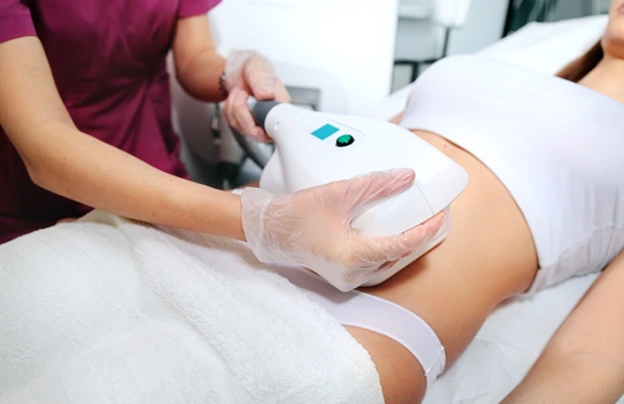How to Select the Right Anti-Aging Treatment for Your Unique Skin Needs
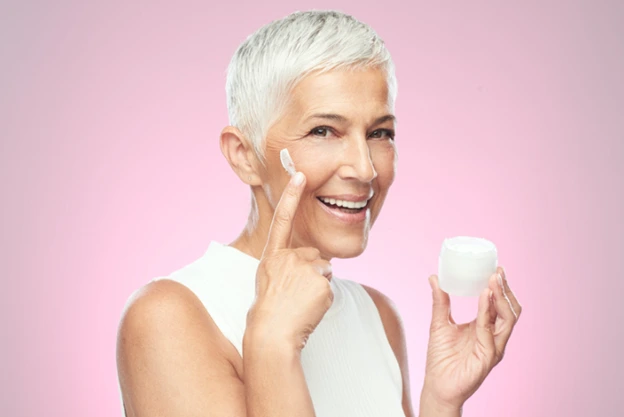
Understanding the aging process and its effects on the skin
As we age, our skin goes through a natural process of change and transformation. Over time, the skin loses its youthful glow, elasticity, and radiance due to a variety of factors, including:
- Decreased collagen and elastin production
- Diminished cell turnover
- Reduced moisture levels
- Increased sun damage and environmental exposure
- Hormonal changes
These changes can lead to the development of fine lines, wrinkles, age spots, sagging skin, and an overall dull and tired appearance. Understanding the aging process and its effects on the skin is the first step in addressing your skincare concerns and finding the perfect anti-aging treatment for your unique needs.
Different types of anti-aging treatments available
The world of anti-aging skincare is vast and ever-evolving, with a wide range of treatments and products available to address the various signs of aging. Some of the most common anti-aging treatments include:
- Topical skincare products:
- Serums
- Creams
- Lotions
- Oils
- Masks
- Injectables:
- Botox
- Dermal fillers
- Platelet-rich plasma (PRP) therapy
- Light-based treatments:
- Laser therapy
- Intense pulsed light (IPL) therapy
- Radiofrequency (RF) treatments
- Microneedling
- Chemical peels
- Microdermabrasion
- Facial massage
Each of these anti-aging treatments has its own unique benefits, targets specific skin concerns, and requires different levels of commitment and investment. Understanding the available options is crucial in finding the right fit for your skin type and goals.
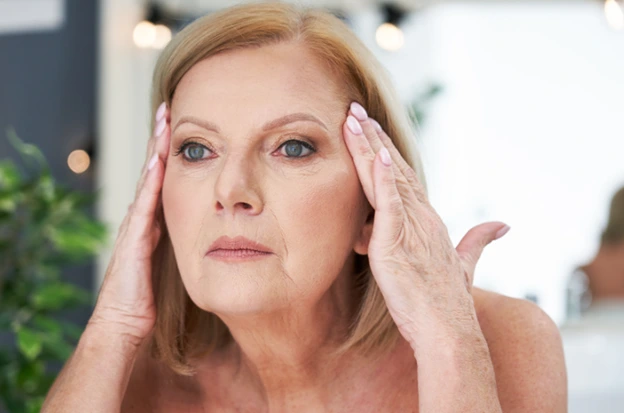
Factors to consider when choosing an anti-aging treatment
When selecting an anti-aging treatment, there are several key factors to consider:
- Skin type and concerns: Ensure the treatment is well-suited to your specific skin type and addresses your primary aging-related concerns, such as wrinkles, loss of firmness, or uneven skin tone.
- Ingredients and formulation: Look for products with high-quality, scientifically-backed ingredients that target the root causes of aging, such as collagen-boosting peptides, antioxidants, and retinoids.
- Desired level of commitment: Determine whether you’re looking for a quick, non-invasive solution or a more long-term, comprehensive approach to anti-aging.
- Budget and accessibility: Consider your budget and the availability of the treatment in your area, as some advanced procedures may be more expensive or require specialized clinics.
- Potential side effects and downtime: Understand the potential risks, side effects, and recovery time associated with each treatment to ensure it aligns with your lifestyle and preferences.
- Professional guidance: Consult with a dermatologist or skincare expert to ensure you’re making an informed decision and receive personalized recommendations for your unique needs.
By carefully considering these factors, you can make an informed decision and choose the anti-aging treatment that will deliver the best results for your skin.
Top anti-aging ingredients to look for in skincare products
When selecting anti-aging skincare products, it’s important to look for formulations that contain high-quality, scientifically proven ingredients that can effectively address the signs of aging. Some of the top anti-aging ingredients to look for include:
- Retinoids: Retinoids, such as retinol and retinaldehyde, are derivatives of vitamin A that can stimulate collagen production, improve skin cell turnover, and reduce the appearance of fine lines and wrinkles.
- Vitamin C: Vitamin C is a powerful antioxidant that can help protect the skin from environmental stressors, brighten the complexion, and boost collagen synthesis.
- Hyaluronic acid: Hyaluronic acid is a humectant that can deeply hydrate the skin, plump up fine lines and wrinkles, and improve skin elasticity.
- Peptides: Peptides are short chains of amino acids that can signal the skin to produce more collagen and elastin, leading to a more youthful, firmer appearance.
- Antioxidants: Antioxidants, such as vitamin E, green tea, and resveratrol, can help neutralize free radicals and prevent premature aging caused by environmental factors.
- Alpha-hydroxy acids (AHAs): AHAs, like glycolic acid and lactic acid, can gently exfoliate the skin, improve cell turnover, and reduce the appearance of fine lines and age spots.
- Niacinamide: Niacinamide is a form of vitamin B3 that can help improve skin barrier function, reduce inflammation, and minimize the appearance of pores and fine lines.
Incorporating these key anti-aging ingredients into your skincare routine can help you achieve a more youthful, radiant complexion.
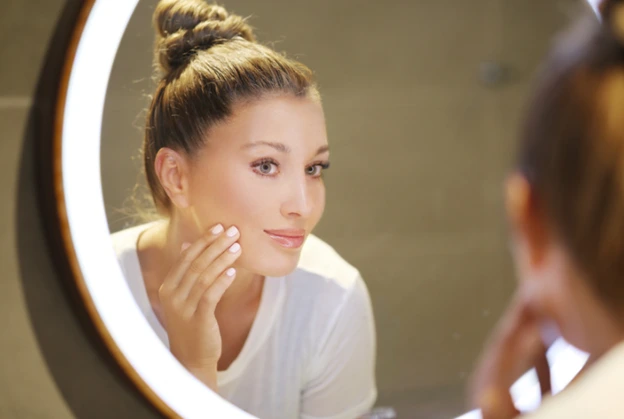
Identifying your unique skin type
Before embarking on your anti-aging journey, it’s essential to take the time to identify your unique skin type. This information will help you make informed decisions about the most suitable treatments and products for your skin. Some common skin types include:
- Dry skin
- Oily skin
- Combination skin
- Sensitive skin
- Normal skin
Factors such as your skin’s natural oil production, texture, reactivity to various products, and environmental factors will all play a role in determining your skin type. Consulting with a dermatologist or skincare professional can also provide valuable insights into your skin’s unique characteristics and needs.
Popular anti-aging treatment options for different skin types
When it comes to anti-aging treatments, there is no one-size-fits-all solution. The most effective approach will depend on your unique skin type and concerns. Here are some popular anti-aging treatment options for different skin types:
Dry skin:
- Hydrating serums and creams with ingredients like hyaluronic acid, glycerin, and ceramides
- Gentle exfoliating treatments, such as lactic acid or enzymatic peels
- Facial oils and balms to lock in moisture
Oily skin:
- Mattifying serums and moisturizers with oil-controlling ingredients like niacinamide and salicylic acid
- Retinol-based treatments to improve cell turnover and minimize pores
- Light-based therapies, like IPL or LED, to address sun damage and discoloration
Combination skin:
- A combination of hydrating and mattifying products to address both dry and oily areas
- Targeted treatments, such as spot-treating wrinkles with retinol and using a gentle exfoliant on the T-zone
Sensitive skin:
- Gentle, fragrance-free formulas with soothing ingredients like centella, green tea, and ceramides
- Microneedling or light-based treatments (with caution and under the guidance of a professional)
- Protective, antioxidant-rich products to shield the skin from environmental stressors
Normal skin:
- A well-balanced routine with a mix of hydrating, brightening, and firming ingredients
- Preventative treatments, such as broad-spectrum sunscreen and retinol, to maintain a youthful complexion
- Occasional targeted treatments, like chemical peels or laser therapy, to address specific concerns
Consulting with a dermatologist or skincare specialist can help you determine the most suitable anti-aging treatments for your unique skin type and concerns.
Pros and cons of non-invasive anti-aging treatments
Non-invasive anti-aging treatments have become increasingly popular in recent years, offering a range of benefits for those seeking to maintain a youthful appearance without undergoing more invasive procedures. Here are some of the pros and cons of non-invasive anti-aging treatments:
Pros:
- Minimal downtime: Many non-invasive treatments, such as facials, chemical peels, and light-based therapies, have little to no downtime, allowing you to resume your normal activities immediately.
- Lower risk of side effects: Non-invasive treatments generally carry a lower risk of complications and side effects compared to more invasive procedures.
- Gradual, natural-looking results: Non-invasive treatments often produce a more gradual, natural-looking improvement in the appearance of fine lines, wrinkles, and other signs of aging.
- Versatility: Non-invasive treatments can be tailored to address a wide range of skin concerns, from dullness and uneven texture to sun damage and loss of firmness.
- Affordability: Many non-invasive treatments are more affordable than invasive procedures, making them accessible to a wider range of individuals.
Cons:
- Temporary results: The effects of non-invasive treatments are often temporary, and maintenance treatments may be required to sustain the desired results.
- Limited effectiveness: While non-invasive treatments can provide significant improvements, they may not be as effective as more invasive procedures in addressing advanced signs of aging.
- Potential for irritation: Certain non-invasive treatments, such as chemical peels or laser therapy, can cause temporary redness, peeling, or sensitivity in some individuals.
- Specialized expertise required: Proper administration of non-invasive treatments, such as microneedling or light-based therapies, requires the expertise of a trained skincare professional to ensure safety and optimal results.
When considering non-invasive anti-aging treatments, it’s essential to weigh the pros and cons, consult with a qualified professional, and choose the option that best aligns with your skin type, goals, and comfort level.
Combining anti-aging treatments for optimal results
For many individuals, combining various anti-aging treatments can lead to more comprehensive and long-lasting results. By incorporating a multi-pronged approach, you can address different aspects of the aging process and achieve a more youthful, radiant complexion. Some examples of effective treatment combinations include:
- Topical skincare + Light-based therapy: Incorporating a daily regimen of high-quality anti-aging skincare products, such as serums, creams, and masks, in conjunction with periodic light-based treatments, like laser or IPL, can help boost collagen production, improve skin texture, and minimize the appearance of fine lines and wrinkles.
- Injectables + Microneedling: Using neuromodulators, like Botox, to temporarily relax dynamic wrinkles, combined with microneedling to stimulate the skin’s natural repair processes, can result in a more comprehensive anti-aging solution.
- Chemical peels + Facial massage: Pairing regular chemical peels, which can improve cell turnover and address discoloration, with facial massage techniques, such as gua sha or lymphatic drainage, can enhance blood circulation and promote a more youthful, radiant glow.
- Retinoids + Antioxidants: Incorporating both retinoids, which can increase cell renewal and collagen production, and antioxidants, which can protect the skin from environmental stressors, can create a synergistic effect in reducing the visible signs of aging.
When combining anti-aging treatments, it’s essential to work closely with a dermatologist or skincare professional to ensure the treatments are compatible, properly timed, and tailored to your unique skin type and concerns. This holistic approach can lead to more impressive and long-lasting results in your anti-aging journey.
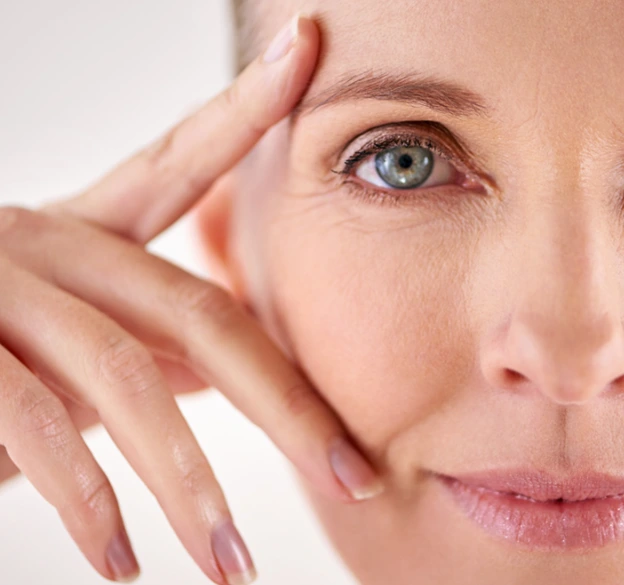
Maintaining healthy skin as you age
Achieving and maintaining healthy, youthful-looking skin as you age requires a holistic approach that goes beyond just using the right skincare products and treatments. Here are some additional tips to help you keep your skin looking its best:
- Protect your skin from sun damage: Consistent use of broad-spectrum sunscreen with an SPF of 30 or higher is essential in preventing premature aging and reducing the risk of skin cancer.
- Incorporate a balanced, nutrient-rich diet: Consuming a diet rich in antioxidants, healthy fats, and vitamins can support skin health from the inside out.
- Stay hydrated: Drinking plenty of water and using hydrating skincare products can help maintain the skin’s moisture levels and plumpness.
- Manage stress: Chronic stress can accelerate the aging process and contribute to various skin concerns. Practice stress-reducing techniques, such as meditation, yoga, or deep breathing exercises.
- Get enough sleep: Aim for 7-9 hours of quality sleep each night, as this allows your skin to repair and regenerate.
- Quit smoking: Smoking accelerates the aging process and can lead to premature wrinkles, dullness, and other skin issues.
- Exercise regularly: Physical activity can improve blood circulation, boost collagen production, and promote a healthy, radiant complexion.
By adopting a comprehensive approach to skin health, you can maintain a youthful, vibrant appearance and delay the visible signs of aging for years to come.
The importance of a personalized skincare routine
Achieving optimal anti-aging results requires a personalized skincare routine that addresses your specific skin type, concerns, and goals. A one-size-fits-all approach simply won’t suffice, as each individual’s skin has unique needs and responds differently to various products and treatments.
By working with a skincare expert, you can develop a customized routine that incorporates the right combination of cleansers, serums, moisturizers, and treatments to target your primary aging-related issues, whether that’s fine lines, loss of firmness, uneven texture, or dullness. This personalized approach ensures that your skin receives the nourishment and care it needs to maintain a youthful, radiant appearance.
Moreover, a personalized skincare routine allows you to adjust over time as your skin’s needs evolve. As you age, your skin’s requirements may change, and a flexible, customized routine can help you adapt and maintain optimal skin health.
Finding the perfect anti-aging treatment for your skin type
Navigating the vast world of anti-aging treatments can be overwhelming, but with a clear understanding of your unique skin type and concerns, you can unlock the secrets to achieving a more youthful, radiant complexion.
Remember, there is no one-size-fits-all solution when it comes to anti-aging. By considering factors like your skin type, desired level of commitment, budget, and personal preferences, you can identify the perfect combination of treatments and products to address your specific aging-related issues.
Whether you choose to incorporate high-quality topical skincare, non-invasive treatments, or a combination of both, the key is to work closely with a dermatologist or skincare professional to develop a personalized plan that delivers the results you desire. With the right approach, you can unlock the secrets to maintaining healthy, youthful-looking skin for years to come.
Ready to take the first step towards a more youthful, radiant complexion? Schedule a consultation with Urban Body Laser’s skincare experts today to discover the perfect anti-aging treatment plan tailored to your unique skin type and needs. Together, we’ll create a customized approach that addresses your specific concerns, helping you achieve the glowing, ageless skin you’ve always dreamed of.




